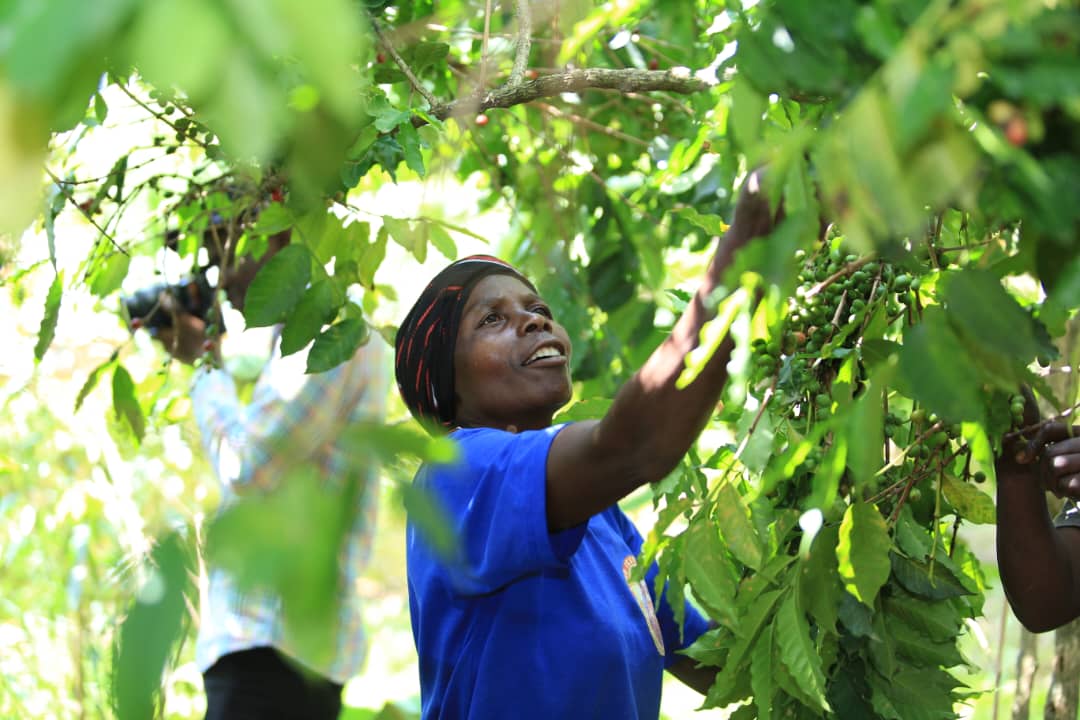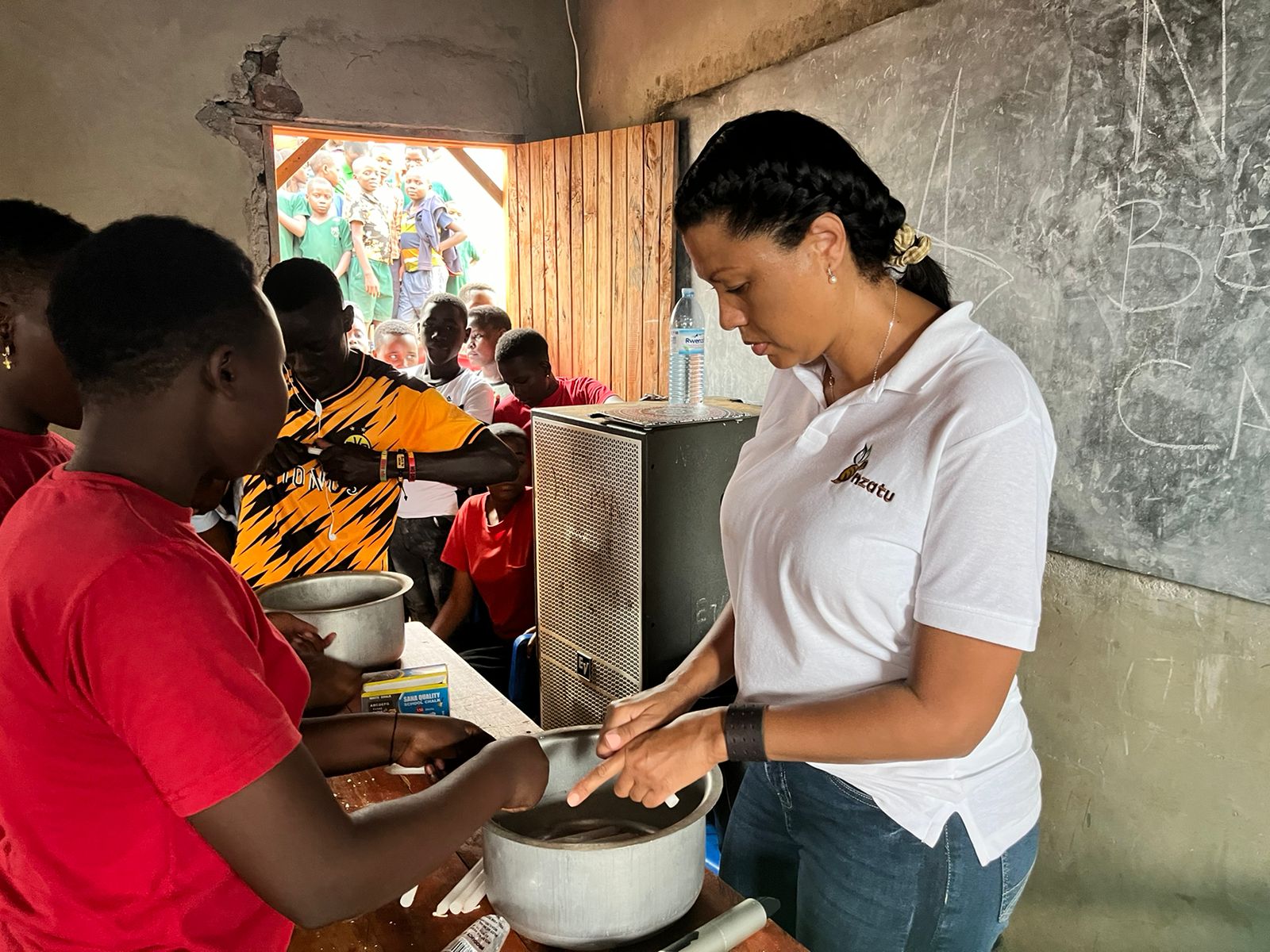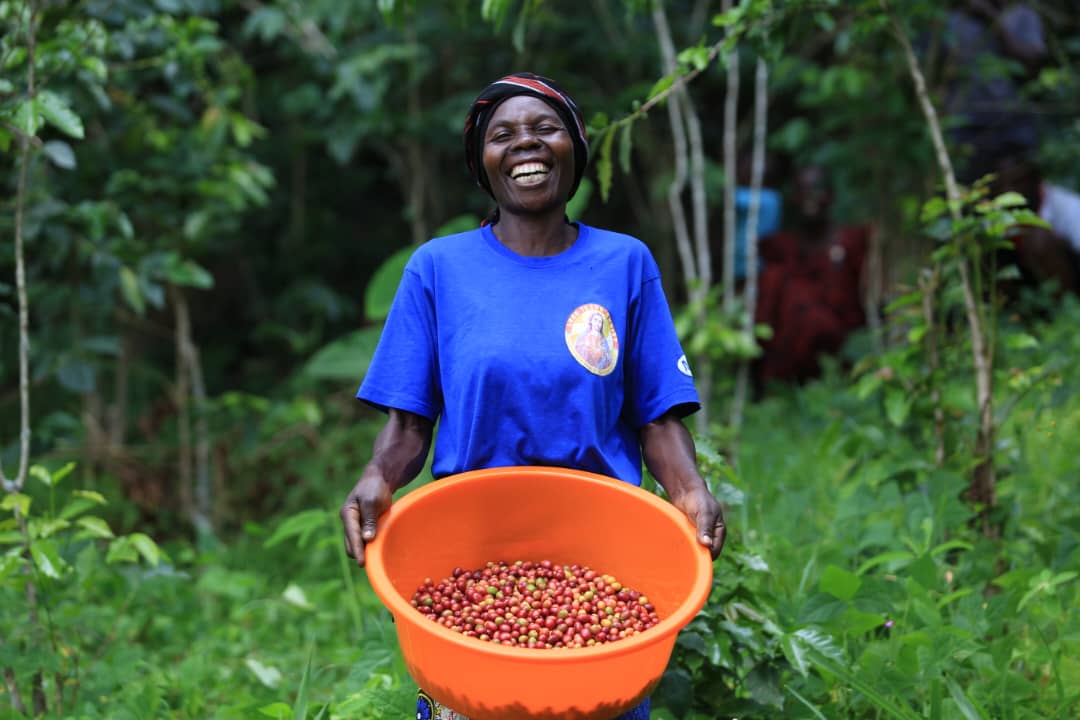NORTH STARS:
Production & Consumption
Diversity & Inclusion
Community Support
“It’s not just about selling coffee, it’s not just about trading. We are there to bring a more harmonious and holistic social, economic, and environmental experience to our communities and our consumers.“
Despite producing most of the food cultivated in sub-Saharan Africa, small-scale farmers typically see little profit from their hard work. They’re also the ones most susceptible to difficulties arising from climate change, including drought, electricity shortages, and lack of transportation. If a farmer does find a way to boost sales beyond setting up shop at local markets, the majority of those earnings are often eaten up by too many links in the supply chain.
Nzatu has set out to change this. Founded by Zambian-born sisters Gwen Jones and Denise Madiro, Nzatu was created in an effort to address climate change, protect biodiversity, and support the livelihoods of rural farmers.
“My sister and I grew up in a rural community along the banks of the Kafue River,” says Jones. “We inherently understand the challenges – and the opportunities – faced by smallholder farmers on a daily basis.”

A woman-led coffee farm in Uganda. Image Courtesy of Nzatu
The Nzatu strategy combines regenerative agricultural activities with the building of partnerships between producers and consumers. The aim is to empower farmers to diversify their income in a sustainable way – and beekeeping is often a great place to start. Jones says that farmers can see a twentyfold income return on honey, earning $3.00 per kilogram on two harvests per year. Compare this to maize, which usually fetches just 20 cents per kilogram with one harvest each year, and the bees provide a clear economic advantage.
“We also encourage the growth of indigenous grains, like millets and sorghums, which are leguminous crops that are able to produce green fertilizer by fixing nitrogen into the soil,” says Jones. “Indigenous grains are not only drought-tolerant, they help to combat malnutrition, which is a scourge across our continent.”
Between beekeeping and grain growing, farmers are able to continue with the cash crops they already have – including the likes of cocoa, cashews, or coffee. The latter is at the heart of Nzatu’s latest project, Njuki Coffee, a co-branded venture with ArtCafé. The coffee beans come from a small, woman-led coffee farm in Uganda and are roasted, packaged, and prepared for European distribution at ArtCafé’s own facility in Parma, Italy. Urban Afrique will support distribution in the North American market.
“It’s not just about selling coffee, it’s not just about trading. We are there to bring a more harmonious and holistic social, economic, and environmental experience to our communities and our consumers,” says Jones.

Nzatu currently works in 15 African nations. Image Courtesy of Nzatu
Nzatu currently works in 15 African nations, supporting producers and their communities with training on everything from the use of new equipment to understanding regenerative practices. Farmers are then able to take their goods to the retail market under the Nzatu brand. According to Jones, one of the biggest challenges for small producers is the number of middlemen who become involved in the distribution process.
“Every transaction adds cost and erodes profit for the producers. By lessening that gap, our vision is to repatriate more profits so that there’s a more equitable distribution in the supply chain,” she says.
It’s not only people who benefit from Nzatu’s work – Africa’s wildlife does, too.
“We promote wildlife conservation and bring in awareness and education on different endangered species as part of our training, helping to reduce human-wildlife conflict,” says Jones.
Nzatu partners with the likes of Global Conservation Corps, the Great Plains Foundation, Elephants Alive! and other organizations through special projects that help drive funding for conservation projects. To learn more about Nzatu’s nature-based approach to uplifting communities, visit Nzatu.com. If you’d like to purchase Njuki Coffee in the United States, visit urbanafrique.com.

Summer Rylander is a freelance travel and science journalist covering positive-impact tourism and the conservation of our biodiverse planet. Follow Summer on IG @summeroutside.



